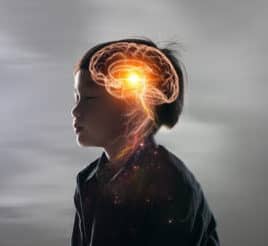
How Captains & Poets answers the needs of students living with autism spectrum disorder
Policy makers around the world are aware of the urgent need for mental health supports in schools. With an increasing number of students labelled “exceptional” each year, the pressure on school boards and public health agencies has only increased.
Among the growing segments of students with exceptionalities are children and youth living with autism spectrum disorder (ASD). As ASD and other communication disorders so greatly impact quality of life for both the individuals and caregivers, the imperative for programs with therapeutic value is more critical than ever.
In Canada, 1 in 66 children is diagnosed with ASD (according to Canada’s Public Health Agency’s 2018 data); and, 1 in 54 in children in the U.S., (according to the Center for Disease Control), representing one of the highest prevalence rates in the world.
My experience implementing Captains & Poets in a classroom of students living with ASD was transformative. The curriculum and supplemental resources gave access to and improved self-awareness and skills in self-expression. As students worked through various memories or scenarios of significant social interactions, they examined self-compassion and empathy in action. And by the end of the program they were able to easily describe opportunities, challenges, and strategies for coping and self-care.
Most importantly, each student came to a deeper understanding and appreciation of authenticity which affirmed their identity as an individual with strengths, needs, so many talents and so much to offer the world. The program offered a simple yet powerful approach to uncovering these aspects of self through a gradual and guided facilitation of inner dialogue that leads to improved self-awareness, self-esteem, and social cognition.
Psychologists know that language is an essential tool for self-regulation with the traditional approach being to teach young people to manage their inner dialogue, self-talk or internal narrative in order to activate higher-order cognitive processes including theory of mind, self-awareness and executive functioning. However, experts say those living with ASD do not use “inner speech” in conventional timelines or ways. “Most people will ‘think in words’ when trying to solve problems which helps with planning or particularly complicated tasks,” says University of Kent professor of developmental psychology David Williams. Williams’ findings were reported in the Development and Psychopathology journal in 2012, where he found that individuals with autism do not employ self-narrative skills in conventional ways.
Like all of us, individuals living with ASD can benefit from improving their receptive and expressive language skills. Functional communication skills are critical to social integration and behaviour and ultimately, quality of life. What is powerful about the Captains & Poets program is it provides ready access through the language of the archetypes. It intuitively deepens access to inner ways of knowing without the reliance on traditional language-based techniques. This allows an individual on the spectrum to benefit from the opportunity to develop inner dialogue, regardless of whether expressive verbal language skills are already present.
The Captains & Poets program offers individuals — both neurotypical and those with exceptionalities such as ASD — the opportunity to take a more intuitive approach to complex aspects of our inner world. The program gives access to a sense of self that is unique, empowering, self-referencing and authentic.
How does it work? Captains & Poets prompts participants to explore and express their struggles, feelings, preferences, identity, challenges, choices, goals and sense of purpose in the world. The lessons promote an internal dialogue and invite participants to articulate themes of identity through oral and written language, visual arts, music, and movement.
Captains & Poets is unique in that while it is largely based in SEL principles, rather than focusing on self-regulation and self-management, it focuses on self-discovery and establishing an inner compass for one’s own way of being in the world. This, in turn, establishes a sense of connection both within and across individuals which opens up new levels of discovery and connection amongst peers.
It is clear that in today’s schools, we need integrated, intersectional, socio-culturally responsible social emotional resources that can touch the lives of all students and, in turn, help support a heightened sense of community and belonging. All people, including people with autism, have the right to strive for the highest attainable standard of emotional well-being. When we teach in a way that is inclusive of all people, all students benefit.
Adrianna is an experienced educator and administrator with a history of working in private and public sector schools, government, and journalism. Skilled in Kindergarten to Grade 12 education, adult education, technology and communications, Adrianna leverages her skills in curriculum development and program implementation to focus on learners living with exceptionalities including giftedness, attention deficit disorder, autism spectrum disorder, and other learning differences. Adrianna has a Masters of Education in Leadership & Adult Education.
